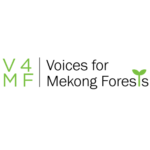Tập huấn về Hiểu biết dữ liệu

Giới thiệu
Hiểu biết về dữ liệu là khả năng đọc, hiểu, làm việc với dữ liệu, phân tích và lập luận dựa vào dữ liệu, và đưa ra được những thông tin có ý nghĩa từ dữ liệu thô. Hiểu biết về dữ liệu không chỉ đơn giản là khả năng đọc bản văn mà bao gồm cả các kỹ năng định lượng và phân tích (như toán học và thống kê) để có thể đọc và hiểu được dữ liệu. Chính vì vậy, hiểu biết về dữ liệu sẽ giúp chúng ta có thể đưa ra các nhận định hoặc kể chuyện sâu sắc và có căn cứ hơn giúp các nhà nghiên cứu, các nhà hoạch định chính sách và nhà báo có thể giao tiếp một cách hiệu quả hơn với công chúng.
Sáng kiến phát triển mở (ODI) phối hợp cùng với Trung tâm Con người và Thiên nhiên (Pan Nature) tổ chức chuỗi tập huấn Hiểu biết về Dữ liệu, gồm 3 đợt. Mỗi đợt tập huấn kéo dài 5 ngày, sẽ từng bước trang bị cho người tham gia những kiến thức và kỹ năng về hiểu biết dữ liệu và kể chuyện dựa trên dữ liệu. Giáo trình tập huấn được Việt hóa từ Chương trình tập huấn Hiểu biết dữ liệu của Ngân hàng thế giới. Chuỗi tập huấn được hỗ trợ bởi dự án “Tăng cường tiếng nói của các bên tham gia ngoài nhà nước để cải thiện quản lý rừng trong vùng sông Mê Kông” – (V4MF) do Liên minh Châu Âu tài trợ.
Nội dung chuỗi lớp tập huấn
Chương trình tập huấn cho phép người học thực hành kĩ lưỡng, vận dụng những kiến thức được học vào các dự án theo nhóm về dữ liệu trong ngành lâm nghiệp. Đồng thời, chương trình giới thiệu rất nhiều các nền tảng, phần mềm mới về xử lý, minh họa dữ liệu mở, miễn phí và cập nhật nhất hiện nay, ví dụ như OpenRefine, Table, Data wrapper, Flourish, Piktochart.
Chuỗi tập huấn bao gồm 6 hợp phần:
- Hợp phần 1: Từ bằng chứng đến câu chuyện – giới thiệu về dữ liệu và cách thức sử dụng dữ liệu để tạo ra các câu chuyện, thông tin về dữ liệu mở cũng như phân tích một số trường hợp điển hình.
- Hợp phần 2: Tìm kiếm thu thập dữ liệu và các dạng dữ liệu – thảo luận về các dạng dữ liệu, các kỹ thuật để tìm kiếm, xử lý số liệu trực tuyến và cách thức biến dữ liệu thành các câu chuyện thông qua việc đưa ra các giả định và câu hỏi.
- Hợp phần 3: Hiểu dữ liệu – đưa ra các khái niệm về làm sạch và tổ chức sắp xếp dữ liệu, cũng như đánh giá chất lượng và nguồn dữ liệu; các kỹ năng tính toán và phân tích dữ liệu. Các vấn đề về đạo đức hay những cạm bẫy khi làm việc với dữ liệu.
- Hợp phần 4: Trực quan hóa dữ liệu – giới thiệu các công cụ để minh họa, trực quan dữ liệu một cách sinh động.
- Hợp phần 5: Suy nghĩ như một nhà báo dữ liệu – Ứng dụng các kiến thức và kỹ năng để làm dự án theo nhóm theo chủ đề tự chọn để kể chuyện.
- Hợp phần 6: Quyền trong số hóa và Bảo mật dữ liệu – đưa ra các thực hành về đảm bảo bảo mật, an ninh mạng trong quá trình làm việc với dữ liệu trên công cụ cá nhân cũng như trên
Nội dung tập huấn sẽ được trình bày bằng Tiếng Việt và Tiếng Anh (có hỗ trợ dịch).
Lịch trình tập huấn dự kiến
- Tuần 1 (Hợp phần 1 & 2) : Ngày 6-10 tháng 7, 2020. Địa điểm tập huấn: Thành phố Hạ Long, tỉnh Quảng Ninh
- Tuần 2 (Hợp phần 3 & 4) : Ngày 10-14 tháng 8, 2020
- Tuần 3 (Hợp phần 5 & 6) : Ngày 21-25 tháng 9, 2020
Yêu cầu khi đăng ký tham gia
- Học viên tham gia lớp tập huấn hiện đang làm việc trong lĩnh vực liên quan đến lĩnh vực phát triển (các tổ chức NGOs, tổ chức xã hội dân sự, cán bộ địa phương, nhà báo,…), ưu tiên các học viên từ các tổ chức về rừng và môi trường
- Học viên tham gia cam kết sắp xếp thời gian để tham gia đầy đủ cả 3 đợt tập huấn.
- Học viên có máy tính cá nhân.
Xin mời điền thông tin ĐĂNG KÝ tại đây. Chúng tôi sẽ lựa chọn bản đăng ký và thông báo đến học viên.
Hạn đăng ký: 29/06/2020
Mọi thông tin chi tiết xin liên hệ với:
Chị Trần Hồng Phượng – Pan Nature – Điện thoại: 0243.5564001 (máy lẻ 109); Email: phuongth@nature.org.vn
Chị Nguyễn Thu Nga – Điều phối viên của ODV – Điện thoại: 0985684286; Email: nnguyen@ewmi-odi.org.
Ghi chú: Ban tổ chức sẽ hỗ trợ chi phí ăn, nghỉ, đi lại cho quý vị trong suốt thời gian tập huấn. Thông tin về công tác hậu cần sẽ được thông báo sau khi quý vị xác nhận tham dự tập huấn.
Open Development Vietnam

